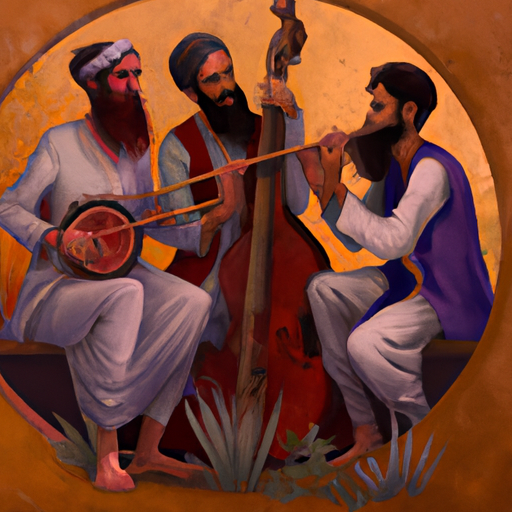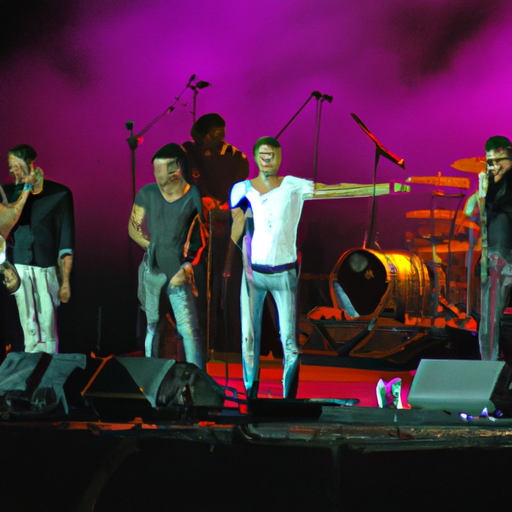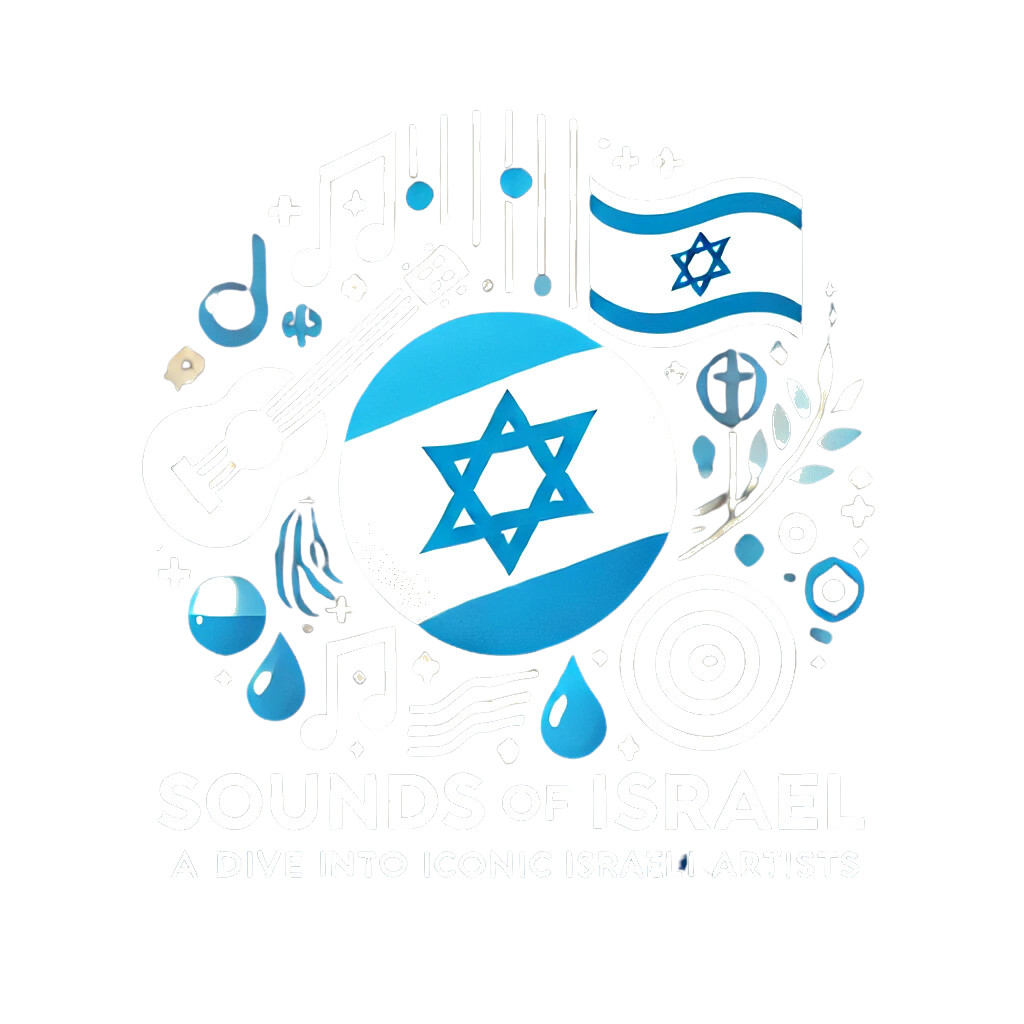This blog post explores the fascinating journey of Israeli music and its deep-seated roots in Jewish tradition, showcasing how it has become a bridge between the past and the present. It delves into the genesis of Israeli music, its evolution, and its contemporary forms, offering readers a thorough understanding of how tradition and modernity harmoniously coexist in Israeli music culture.
1. ‘From Biblical Psalms to Folk Tunes: The Genesis of Israeli Music’
Israeli music has a rich and diverse history that can be traced back to ancient times.
**Biblical Roots**: The roots of Israeli music can be found in the sacred texts of the Hebrew Bible, where psalms were sung and musical instruments were played to praise and worship God. These ancient melodies laid the foundation for the musical traditions that would later emerge in Israel.
**Influence of Jewish Diaspora**: As the Jewish people scattered across the world, they brought their music with them, incorporating new styles and sounds from the various cultures they encountered. This fusion of musical influences from different regions and traditions gave rise to a unique and eclectic Israeli sound.
**Folk Music Traditions**: Israeli folk music, known as “Tapestry of Sounds,” draws inspiration from the diverse communities that have inhabited the region throughout history. From the haunting melodies of the Mizrahi Jews to the lively tunes of the Ashkenazi Jews, Israeli folk music reflects the cultural tapestry of the land.

1. An old illustration showing people in traditional Israeli attire playing various ancient musical instruments
2. The Evolution of Israeli Music: A Melting Pot of Cultures and Influences?
Israeli music has undergone a fascinating evolution, reflecting the country’s history as a melting pot of cultures and influences.
**Immigrant Contributions**: With the influx of immigrants from diverse backgrounds, Israeli music has absorbed elements from Eastern European klezmer, Middle Eastern maqam, North African rhythms, and Western pop and rock. This fusion of sounds has created a vibrant and dynamic musical landscape that is uniquely Israeli.
**Innovation and Experimentation**: Israeli musicians have not been afraid to push boundaries and experiment with new genres and styles. From the pioneering work of artists like Ehud Banai and Shlomo Artzi to the contemporary sounds of Idan Raichel and Sarit Hadad, Israeli music continues to evolve and reinvent itself.
**Global Recognition**: In recent years, Israeli musicians have gained international acclaim, further showcasing the diversity and creativity of the country’s music scene. Artists like Netta Barzilai, who won the Eurovision Song Contest in 2018, have brought Israeli music to a global audience, demonstrating its ability to transcend borders and connect with people from all walks of life.
3. Israeli Pop and Rock: A Modern Reflection of Ancient Traditions?
Israeli pop and rock music serve as a modern reflection of ancient traditions, blending contemporary sounds with historical roots.
**Cultural Heritage**: Drawing inspiration from Jewish liturgical music, Yemenite chants, and Sephardic melodies, Israeli pop and rock artists infuse their music with a deep connection to the country’s rich cultural heritage.
**Lyrics with Meaning**: Many Israeli songs incorporate meaningful lyrics that touch on themes of identity, history, and social issues, reflecting a desire to preserve and celebrate the nation’s past while addressing present-day concerns.
**Innovative Sounds**: Bands like Mashina and Hadag Nahash have gained popularity for their innovative approach to blending traditional Israeli music with modern rock and hip-hop elements, creating a sound that is both nostalgic and forward-thinking.
**Crossing Boundaries**: Israeli pop and rock music have transcended national borders, resonating with audiences around the world and showcasing the universal appeal of music that is rooted in tradition yet unafraid to embrace innovation.

3. A contemporary image showing popular Israeli pop and rock artists performing on stage
4. ‘Music is the language of the spirit. It opens the secret of life bringing peace, abolishing strife.’ – Kahlil Gibran: How Israeli Music Connects Us?
Israeli music serves as a powerful medium that transcends cultural and geographical boundaries, connecting people on a deeper spiritual level. The quote by Kahlil Gibran beautifully encapsulates the essence of music as a universal language that speaks to the soul, conveying emotions and experiences that words alone cannot express. Israeli music, with its diverse influences and rich tapestry of sounds, has the ability to evoke a sense of unity and understanding among listeners from all walks of life.
Through the melodies and lyrics of Israeli songs, listeners can experience the essence of the country’s history, traditions, and values, fostering a sense of connection and shared humanity. Whether it is a hauntingly beautiful ballad or an upbeat rock anthem, Israeli music has the power to touch hearts and minds, fostering a sense of empathy and compassion. In a world often marked by division and conflict, the universal language of music has the potential to bridge gaps, promote dialogue, and cultivate a sense of harmony among diverse communities.
Israeli music is not just an art form, but a mirror reflecting the country’s rich history, diverse culture, and progressive future. It is a testament to the resilience of the people, who have managed to preserve their past, yet embrace the future with open arms. Israeli music and tradition, therefore, serve as a beautiful bridge between the past and the present, offering a unique cultural experience that resonates with people across the globe.
